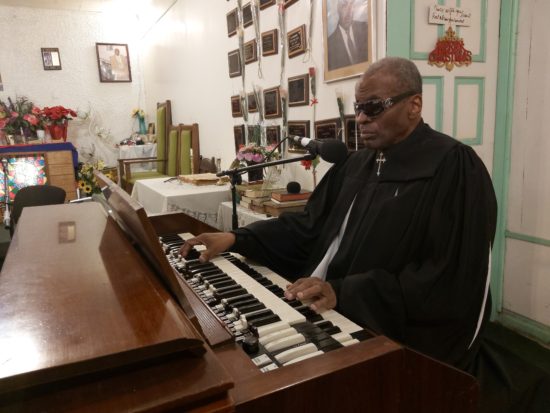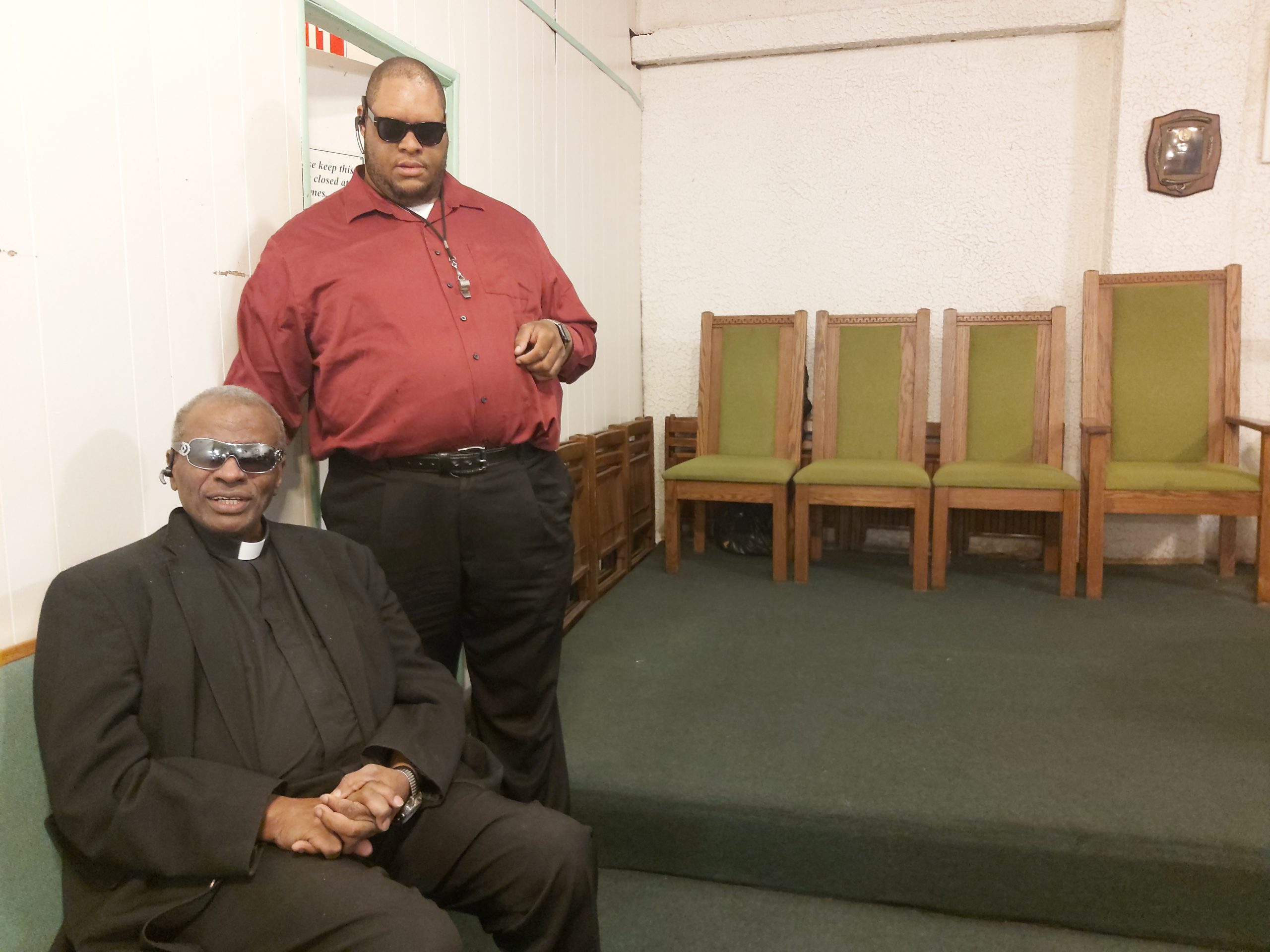
Pastor Jack Walker massaged his wrist as he, Donnalee English and Victor Andrews sat together for Bible study. English, the choir pianist, gently tapped her foot–muscle memory that persisted even without a piano pedal.
As Bible study came to an end, English tucked the braille papers under her arm and hoisted herself up from the pew, her knees buckling under her. Her fingers trembled as she lumbered towards the piano. At first contact, English breathed a sigh of relief.
Walker’s transfer to the Rivers Tabernacle Prayer House on E. 161st Street in 2012 opened the church to visually impaired worshippers to exercise their talents in the church choir.
Walker, who has been blind most of his life, said churches can isolate blind worshippers.
“They have this idea that if you’re blind you can’t do anything. That’s the stigma–I preach with my mouth not with my eyes!” Walker said. “You figure the church should welcome you if no one else does, but unfortunately that’s not always the case.”
Lucia Marett, Lois Borden, Andrews and English are all members of the church choir as drummers, singers and pianists. Borden, English, Marett and Walker have weaved in and out of each other’s lives for decades. The group of friends overlapped at various schools for special needs children, such as the Lavelle School for the Blind, the Lighthouse Guild and the New York Institute for Special Education.
In 2016, Walker rose from associate pastor to interim pastor. Shortly after, he invited his friends to the church because he was taken by the church’s warmth–a sharp contrast to his experience at other churches, one such that he was isolated in a room with other blind people, separate from the rest of the congregation.
“It didn’t seem to bother the people in that room but people get complacent–they settle for the situation feeling that there’s nothing they can do about it.” Walker said. “But I’m a rabble rouser and I can’t do that.”
English, 66, recounted that at another church, she was asked to stop playing the because she couldn’t consistently keep time with the rest of the choir. English left the church not long after.
In 2018, Walker became the church pastor and the church purchased a braille printer to offer service material in braille. Borden, who travels from Chelsea in Manhattan to Melrose to attend service at the Prayer House, found this particularly appealing. Braille programs made service easier for her to follow and none of her previous churches offered material in braille.
Claire Stanley, advocacy and outreach specialist with the American Council of the Blind, said that under Americans with Disabilities Act (ADA), churches are not required to make accommodations for disabled people. Some do, she said and others–not quite.
Walker doesn’t believe that churches isolate blind worshippers on purpose.
“People become uncomfortable around us. Many times people think we’re helpless.” Walker said, “I can do anything a sighted person can do. It might take me longer but it gets done!”
The group’s gatherings at the church offered them community when so often they feel ignored. Walker depends on Andrews for updates on technology, like the latest Apple product–Andrews even convinced the pastor to buy an iPhone. Almost weekly, the group goes out to eat, sometimes at Georgia Diner in Queens and other times at Malibu Diner in Manhattan.
“Everybody says all of y’all stick together,” Walker said, “It’s true–you mess with one of us you mess with all of us.”
“The bonds of the blind are tight because we’re at the mercy of others,” Borden said.

